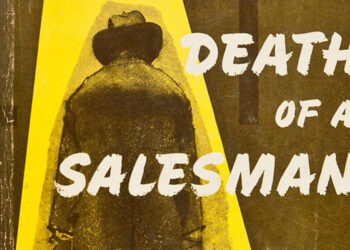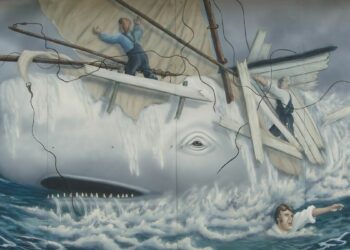IGNOU MEG Important Question with Answers PDF 2024 – IGNOU MEG 002 British Drama Important Questions / Guess Papers for Exam, British drama holds a significant place in the global theatrical landscape, boasting a rich history that spans centuries and encompasses a diverse range of styles, themes, and voices. From the timeless works of William Shakespeare to the groundbreaking modern dramas of the 21st century, British theatre has continually evolved, reflecting the cultural, social, and political dynamics of its time. In this comprehensive exploration, we will delve deep into the multifaceted world of British drama, tracing its origins, examining its key movements and playwrights, and analyzing its enduring impact on both domestic and international stages.
BUY PDF & Hardcopy
WhatsApp – 8130208920
IGNOU MEG 002 British Drama Important Questions
- What are the key characteristics of British drama?
- How has British drama evolved from the medieval period to the present day?
- Who are some of the most influential British dramatists and playwrights?
- What role did William Shakespeare play in shaping British drama?
- How did the Restoration period influence British drama?
- What are the major themes explored in British drama?
- How did the Victorian era contribute to the development of British drama?
- What impact did the censorship laws, such as the Licensing Act of 1737, have on British drama?
- How has British drama been influenced by political and social changes?
- What is the significance of the British theatre tradition in contemporary drama?
- How do British dramas differ from American dramas in terms of style and themes?
- What role do British television dramas play in the global entertainment industry?
- How have modern British playwrights like Harold Pinter and Tom Stoppard impacted the theatre scene?
- What are some of the most iconic British drama series on television?
- How does British drama address issues of class and social hierarchy?
- What role does humor play in British drama?
- How do British dramas portray historical events and figures?
- What influence have British drama schools and training programs had on the industry?
- How has British drama been received internationally, particularly in the United States?
- What future trends can be expected in British drama and theatre?
IGNOU MEG Notes PDF 2024
The roots of British drama can be traced back to the medieval period, where performances such as mystery plays and morality plays were staged in churches and town squares. These early dramatic forms served as a means of religious instruction and entertainment for the masses, often depicting biblical stories and moral allegories. With the rise of the Renaissance, drama flourished in England, culminating in the golden age of Elizabethan theatre. The works of playwrights like Christopher Marlowe and Ben Jonson laid the foundation for the dramatic genius of William Shakespeare, whose timeless plays continue to captivate audiences worldwide.
The Elizabethan and Jacobean Eras:
The Elizabethan and Jacobean eras represent a golden age of British drama, characterized by an explosion of creativity and innovation. The establishment of purpose-built theatres, such as the Globe and the Rose, provided a dedicated space for theatrical performances, allowing playwrights like Shakespeare to showcase their talents to a wide audience. During this period, English drama reached new heights of complexity and sophistication, with plays exploring themes of love, power, betrayal, and redemption. Shakespeare’s tragedies, comedies, and histories remain enduring masterpieces of world literature, demonstrating his unparalleled ability to capture the human condition with depth and nuance.
The Restoration Period:
Following the turbulent years of the English Civil War and the subsequent restoration of the monarchy, British drama underwent a significant transformation during the Restoration period. The reopening of the theatres in 1660 heralded a new era of theatrical decadence and excess, characterized by lavish productions, witty comedies, and risqué themes. Playwrights like William Congreve and Aphra Behn flourished during this period, producing works that reflected the hedonism and libertinism of Restoration society. Despite facing censorship and criticism from moral reformers, Restoration drama played a crucial role in shaping the comedic tradition of British theatre, laying the groundwork for future generations of playwrights.
The Victorian Era:
The Victorian era witnessed a shift in the landscape of British drama, as social reform movements and changing cultural attitudes influenced the themes and content of theatrical productions. The rise of melodrama and domestic drama reflected the moral concerns of the time, with plays addressing issues such as poverty, injustice, and the plight of the working class. Playwrights like Oscar Wilde and George Bernard Shaw challenged Victorian conventions with their biting wit and social satire, paving the way for a new era of theatrical experimentation and innovation.
Modernism and the 20th Century:
The advent of modernism in the early 20th century brought about a revolution in British drama, as playwrights sought to break free from traditional forms and explore new modes of expression. The works of writers like Samuel Beckett, Harold Pinter, and Tom Stoppard pushed the boundaries of theatrical convention, experimenting with language, structure, and symbolism. The emergence of the “Angry Young Men” movement in the 1950s gave voice to a generation of working-class playwrights who challenged the status quo and brought issues of class, identity, and social inequality to the forefront of British theatre.
Contemporary British Drama:
In the 21st century, British drama continues to thrive as a vibrant and diverse art form, encompassing a wide range of styles, genres, and perspectives. From the gritty realism of playwrights like Sarah Kane and Mark Ravenhill to the whimsical fantasies of writers like Jez Butterworth and Caryl Churchill, contemporary British theatre reflects the complexities of modern life in all its glory and despair. The proliferation of small-scale theatres, fringe festivals, and experimental productions has democratized the theatrical landscape, providing opportunities for emerging playwrights to showcase their work and engage with audiences in new and exciting ways. IGNOU MEG 02 British Drama Important Questions / Previous Years Solved Papers
VISIT – https://shop.senrig.in/

















